The Macedonian question seen from Thessaloniki
In the last years I was very often in Thessaloniki, as it was also the case at the end of September. As chair of the board of the CDRSEE – the Center for Democracy and Reconciliation in South East Europe – I attended the regular board meeting in the capital of the Greek region of Macedonia. The board members from the Macedonia region were basically happy about the new agreement between the two governments. But they are not enthusiastic. The population of the region is not only not enthusiastic but seems to be against with a strong majority.
Of course it is not easy to accept for Greek Macedonians the new name for the neighboring country which is including the name Macedonia. For them this is highly controversial while for many citizens of the independent Macedonia the adjective North is not seen well. Interestingly both conservative oppositions in Greece and Macedonia are against the agreement – on the basis of these arguments. And even more interestingly Russia is supporting the contradictory line of the opposition in both countries. Russia is against the agreement. Maybe the logic line is, that the conclusion and implementation of the agreement will open up the – long – way towards the membership of Northern Macedonia in NATO and the EU.
In all the debates we had in Macedonia and Greece last week about the impact of the negotiated agreement another possible deal was also mentioned. The presidents of Kosovo and Serbia started to discuss a land swap in order to prepare the recognition of Kosovo as independent country by Serbia. The northern part of Kosovo which is predominantly populated by Serbs should go to Serbia in exchange of the Serb Presovo valley which is manly Albanian populated.
It would be great if the Kosovo issue und the whole question of recognition of it could be settled. But should we really give up the aspiration to stick to the concept of multinational countries? What about the Serbs living in other parts of Kosovo, south of the river Ibar? And what would be the consequence for other countries of the region especially Bosnia-Herzegowina. Here the President of the Republika Srpska is again and again threatening to form a separate republic or to ask for joining Serbia. Also in Macedonia some radicals of the Albanian population could start a nationalistic and separatist movement. And how would Russia react? On the one hand it could not be openly against a solution which Serbia has agreed to but it could nevertheless stir unrest in other countries of the region for example in Bosnia Hercegovina.
If it really should come to an understanding between Serbia and Kosovo one would need a regional conference with the participation of the EU, its member countries and the US. It would be necessary to reach a broad international agreement on all border issues in the region to avoid any domino effect. It was very strange that the US and some EU countries have supported Serbia and Kosovo to start these talks. And so far I have not heard how these countries will act to avoid a series of border discussions in other countries of the region. Because we need stability and not new conflicts.
P.S.: The – non-binding – referendum was a failure concerning the participation, the threshold of 50% was not reached. But it was a big success concerning the yes votes. Once an issue is over many years defined as a matter of losing or keeping ones identity it is difficult to convince people to act pragmatically. Especially when the opposition and even the president of the country argue for an boycott of the referendum.
Both oppositions – in Macedonia and in Greece – act irresponsible and fight with totally contradictory arguments the agreement. So again there is no hope for an anyway long way of Macedonia into the EU. The start of EU negotiations and the opening up of NATO membership is again in doubt and may be blocked by Greece. Unless Prime-minister Zaev is able to win some opposition members to support the necessary constitutional changes. And here he needs the support of the EU in making it clear to the opposition that Europe wants a responsible behavior beyond party political games. And as it seems that after the next Greek elections the conservative opposition will form a government another enemy of compromise will be in power and willing to block a sound and peaceful development in the Western Balkans.
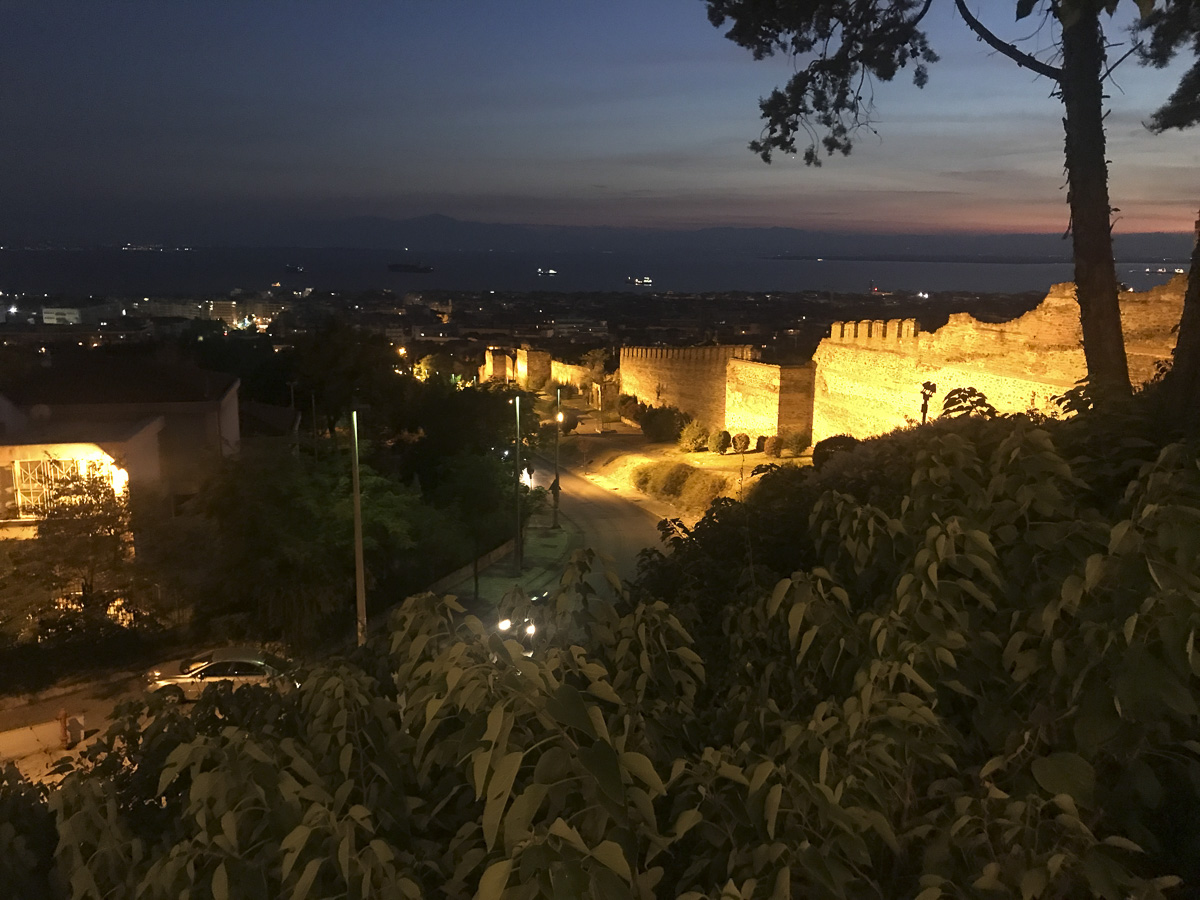
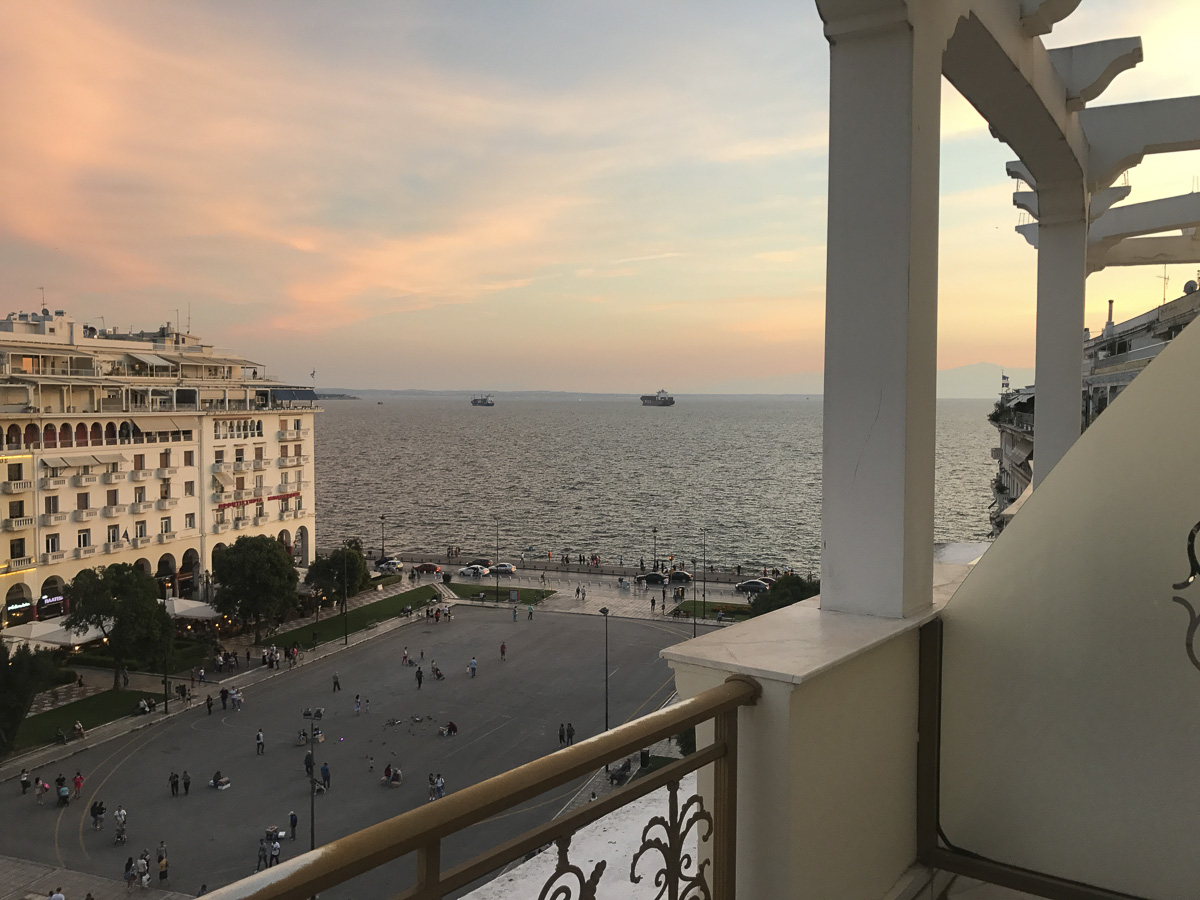
ALBANIA AND SERBIA – TWO PILLARS IN A FRAGILE REGION?
In an event invited by the Serb news agency tanjug and its Albanian counterpart ata I have been invited – together with other speakers to present some ideas about „perspectives and responsibilities“ of Serbian-Albanian relations. Indeed these two countries bear a strong responsibility for the whole region even if all countries and all ethnic groups inside these countries must speak for themselves. And they do it.
But the fact that Serbia is the biggest country in the region and has a special right and responsibility for Kosovo makes the overall responsibility of Serbia clear – in spite of its other actions and behavior in the Yugoslav wars. On the other hand there are many ethnic Albanians in most of the Balkan countries. Again, Albania is not the automatic spokesman for these groups, but a positive attitude towards solving conflicts inside these countries and between countries can promote peace and stability in the region.
The difference of course is that Serbia is part of a conflict and Albania has only minor differences for example with Greece. And of course the burden of Yugoslav and/or Serb history is often a burden in its relationship with its neighbors. Serbia should come clear with its actions in the past to look more easily and constructive into the future. But of course that is also true for all the other countries including Croatia which is already a member country of the EU.
At that particular moment there are two issues which should be solved very soon. The name issue in Macedonia and the Kosovo issue. The more these issues are kept alive and unsolved, the more it will be difficult to solve them. People are getting used to the nationalistic and ethnic rhetoric and are not willing to follow politicians if all of a sudden they are willing to compromise.
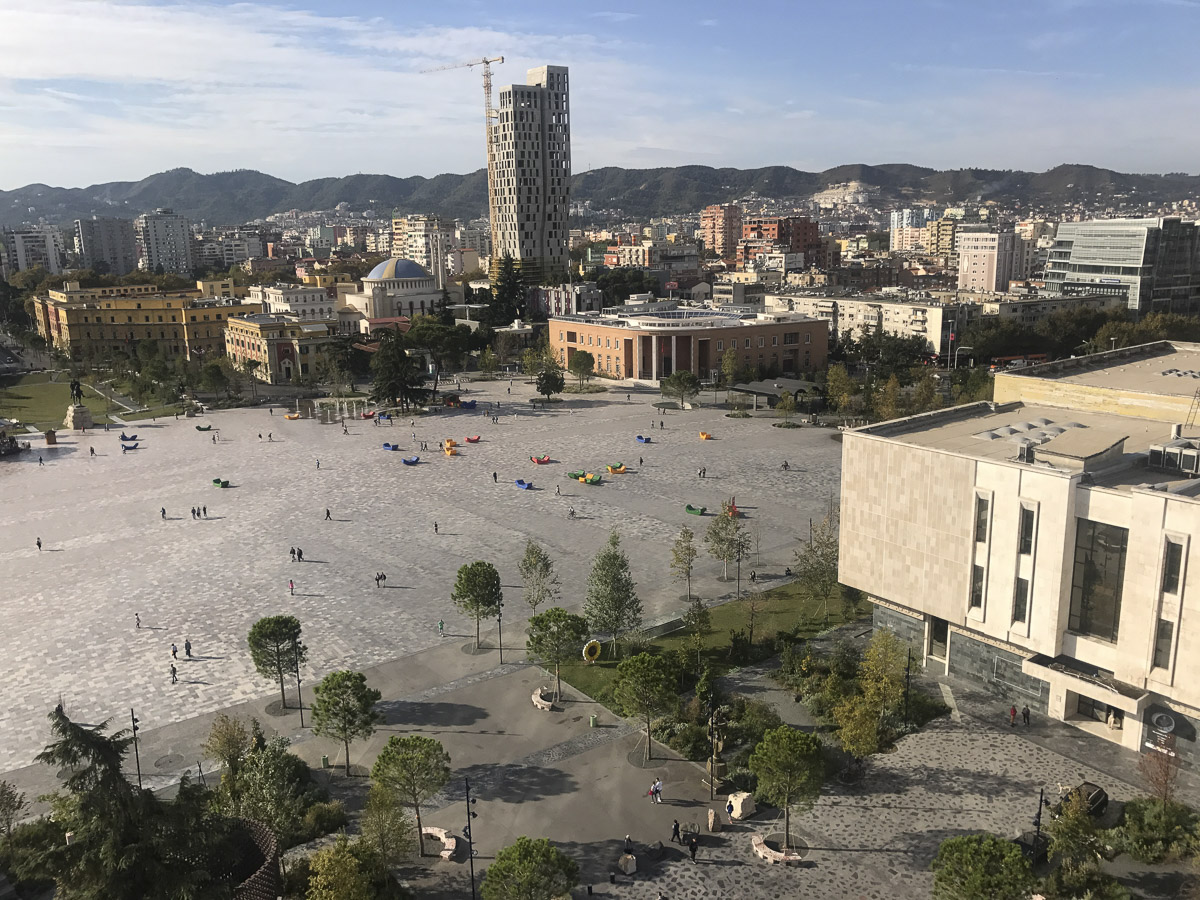
Concerning the Macedonian issue Albania and its Prime-Minister Edi Rama did what they could do to moderate and improve the development in Macedonia. And the new Macedonian Prime-Minister Zaev and the Greek Prime-Minister Tsipras did a very good job in finding a compromise. Unfortunately the opposition in both countries – out of contradictory reasons and arguments – try to destroy the agreement without having any alternative. And some Russian friends tried to support this destructive process.
The EU has much too late intervened and it is difficult to change public opinion once it had been influenced over years by nationalistic and „identity“ arguments. That doesn’t not leave much room for pragmatic solutions. The EU did not abstain from very detailed economic intervention in Greece but was very hesitant or even absent in trying to mediate between the two countries in the early time of the dispute.
The Kosovo issue has also become – or has always been – one of identity and national emotions. The old idea taken up by the Serb and Kosovo presidents to swap land in order to „solve“ the Kosovo issue is very doubtful. You never can – and should try to – establish ethnically clean states. And history shows that the thesis that ethnically divers countries and societies do not function is not true.
In addition one must always – especially in a fragile region as the Western Balkans – look to the consequences to other states. In this case this is particularly true for Bosnia-Herzegovina. Whatever Serbia and Kosovo – and not only the presidents – should negotiate, one would need a clear view about its consequences. It would be necessary to organize a regional conference with all countries of the region, the EU and maybe the US and even Russia to come to an agreement which is stabilizing and not endangering the situation in the region. When I am confronted with the – understandable – argument that this is impossible, my counter argument is that then we should refrain from proposing a land swap which could invite people in other countries to follow that example. Let us not play with fire.
Anyway the Kosovo issue came up also in the discussion in Tirana. Some are perhaps not too happy that Albania is not always reacting fiercely to speeches of Serb politicians which are seen as provocative in Kosovo. And on the other hand there are also minority issues with a Serb minority around Skhodra and an Albanian minority in the Presovo valley in Serbia. Generally a recent opinion pole showed, that on both sides the people are just living side by side but not very interested in close contacts and even more in mixed marriages.
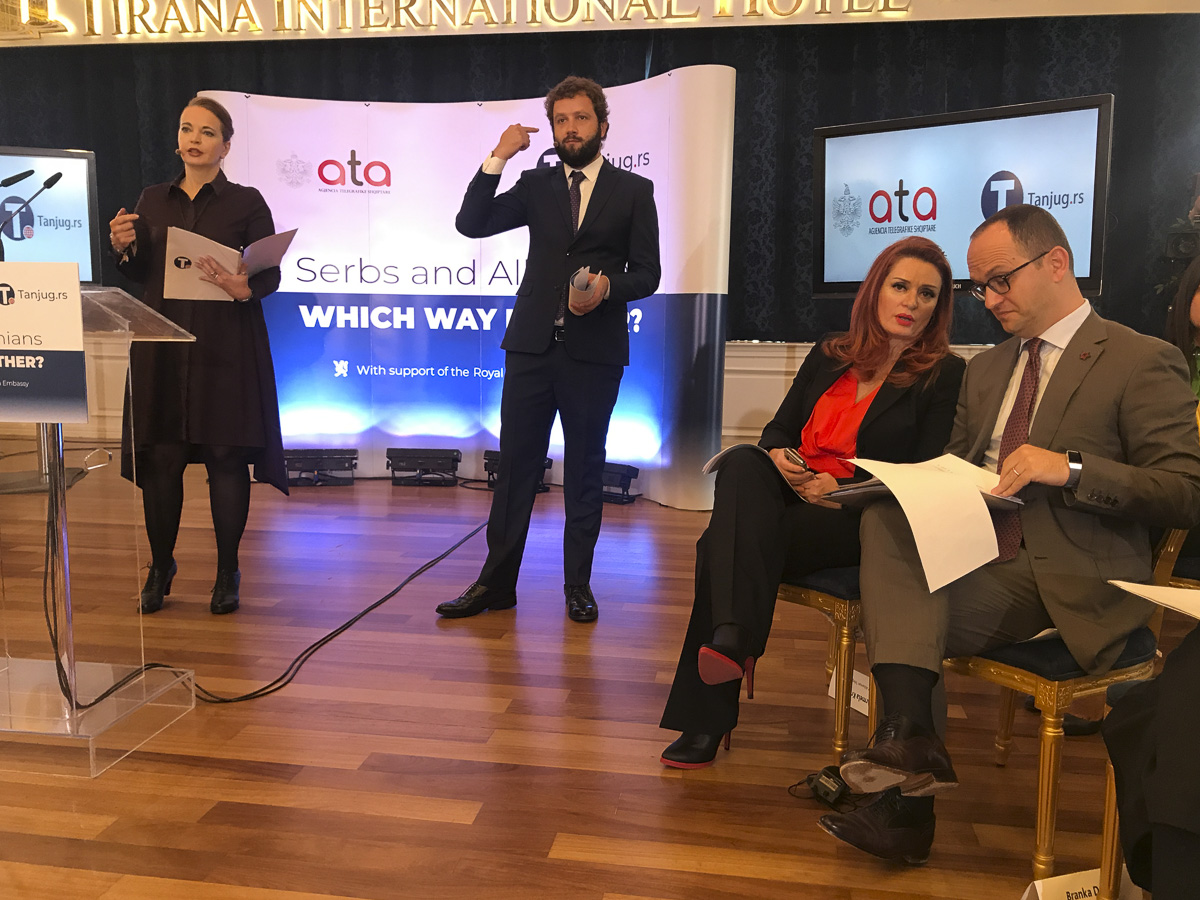
The only common issue that people in both countries share is the aspiration to join the EU. But one must be aware that many especially young people are already inside the EU as migrant students, workers and employers. This should not be a huge problem, if it would not be very often a permanent emigration. It would be even a contribution to the region’s development and better future if many of those who study and are trained abroad would be invited to come back. That invitation would be effective if the conditions for finding a job and/or setting up a business would be improved by less bureaucracy and corruption. But that is an obligation the governments have to undertake.
In the meantime there are some programmes to enhance people to people contacts set up by the governments of the region. And there are many applications to the call issued by the relevant organization, the Western Balkan Fund. But the financial resources are very limited and therefore only a small number of even the excellent proposals can be supported. Also that shows, that in the end these contacts across the borders are not a high priority for the governments. But it should be, because without more knowing each other it will be difficult to avoid conflicts and promote a climate of cooperation.
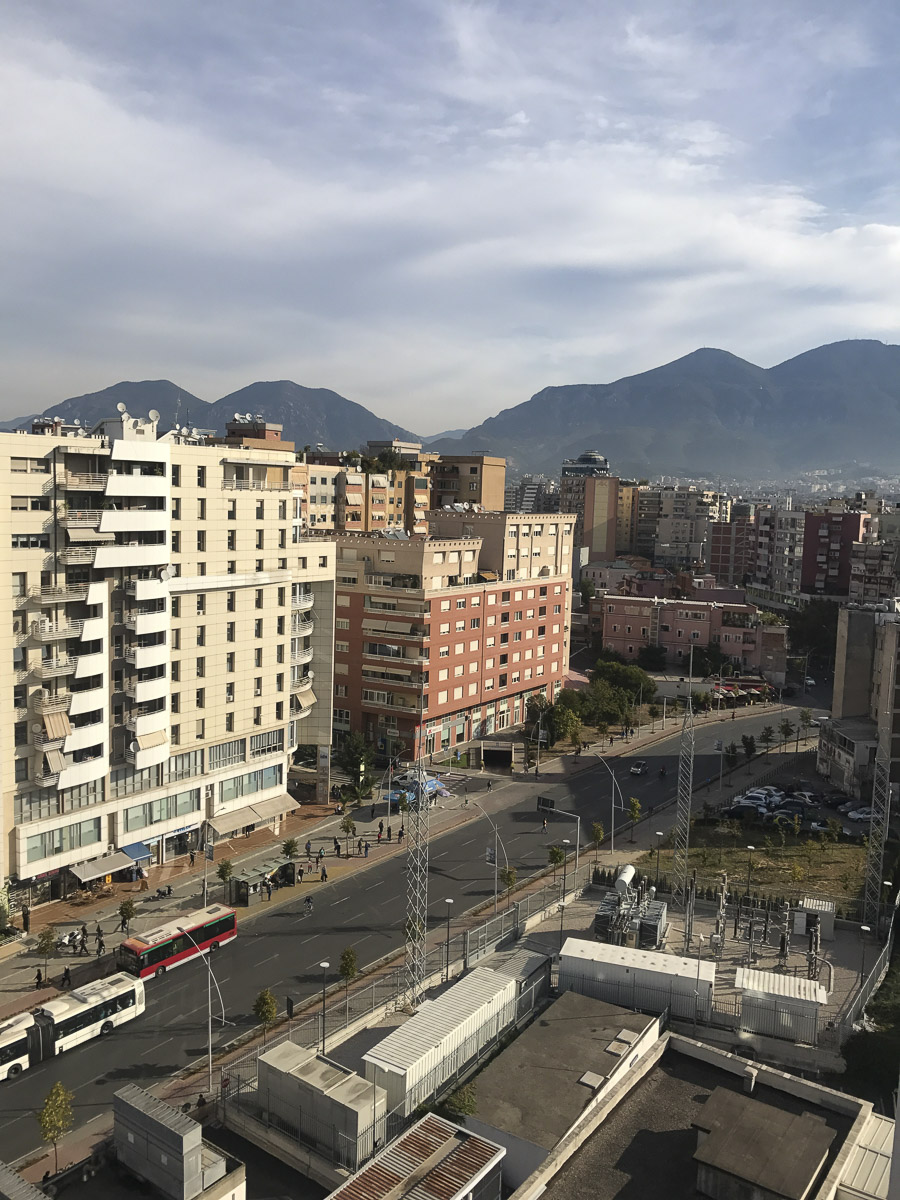
Elections in Bosnia-Herzegovina – confirmation of status quo or change?
The IIP organized together with and on initiative of the Vienna based „Forum for Journalism and Media“ (fjum) presentations and a debate about the impact of the forthcoming elections in Bosnia-Herzegovina. There was not much optimism, that these elections will improve the political situation and mend the cleavages in this Balkan country.
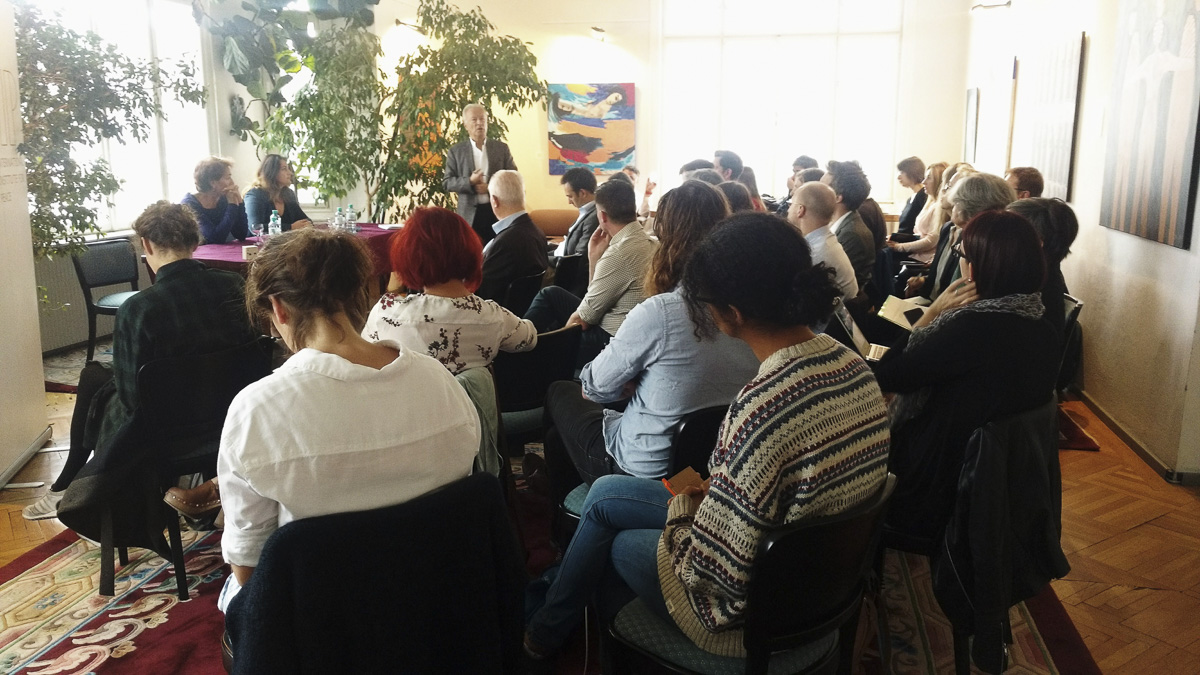
Bosnia-Herzegovina as it is constructed and functioning or rather malfunctioning today is the result of the Dayton agreement. It was always my opinion, that Dayton was the only possible way to stop the dreadful Yugoslav wars. But it created a doubtful and very fragile constitution to govern three different ethnical groups in one country. The hatred created and supported by irresponsible leaderships of these groups is still taking hostage of the population. Unfortunately time did not made the irresponsible and nationalistic leaderships disappear but strengthened them even. And those citizens who just want to be citizens of the country as such without special allegiance to one ethnic group suffer specially. Nevertheless it would be a tragedy to give up the idea and aspiration of multiethnic states and societies. Anyway there a no clear dividing lines between regions of different ethnic groups. Also the presently discussed idea of diving Kosovo along the Ibar river and organize a land swap does not create ethnically „clean“ areas.
Primarily it is the President of the Republika Srpska who is in the forefront of those in Bosnia-Herzegovina who are fighting for their ethic/national constituency. But he is not the only one who is not working primarily for Bosnia-Herzegovina but for his ethnic oriented electorate. This narrow minded policies enhance of course corruption. One has to defend the specific interest of his own group, has to do a favor to his people, has to give a contract to his – ethnic – friend – and of course welcomes a gift in exchange for giving a favor.
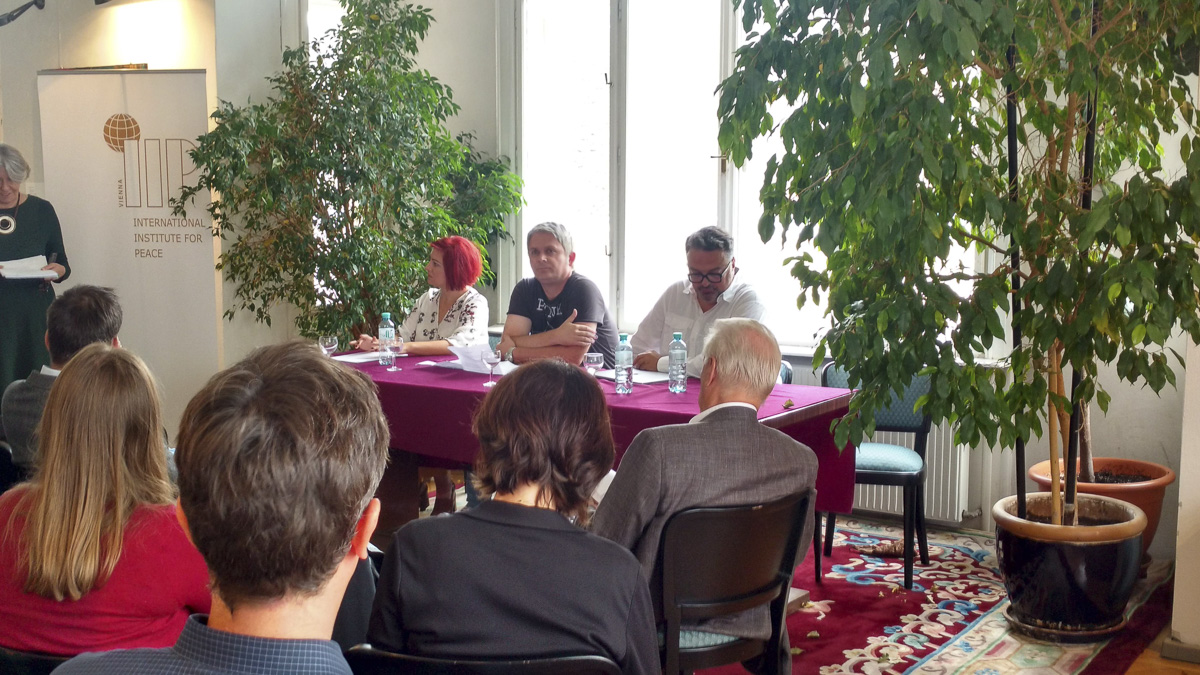
To keep this system alive, the leaders and their immediate environment and even some crooks who want to benefit from the system are often brutally fighting against all those who are criticizing this system. Some NGOs and independent media, but also cultural activists are victims of these attacks. Some even pay with their life.
It was definitely not a rosy picture the speakers at this event presented. While some presented a devastating analysis others were a bit more optimistic. The latter criticized the permanent talk of an immanent threat of a new war and of a secession of the Republika Srpska. One should rather concentrate on the small improvements for the life of the people and try to develop a concept of circular migration where emigrants who are trained in foreign countries could be convinced to come back and establish a business and practice a profession etc. in Bosnia-Herzegovina.
Of course also the role of the High Representative and of the European Union has been questioned. It is really questionable if the office of a High Representative with the power to intervene into the political system and decision making is not preventing the political parties and politicians to take ownership of their country and be responsible for the decisions to be taken. On the other hand if we have interventions from the side of the EU they should be clear and unequivocal especially when human rights are heavily violated.
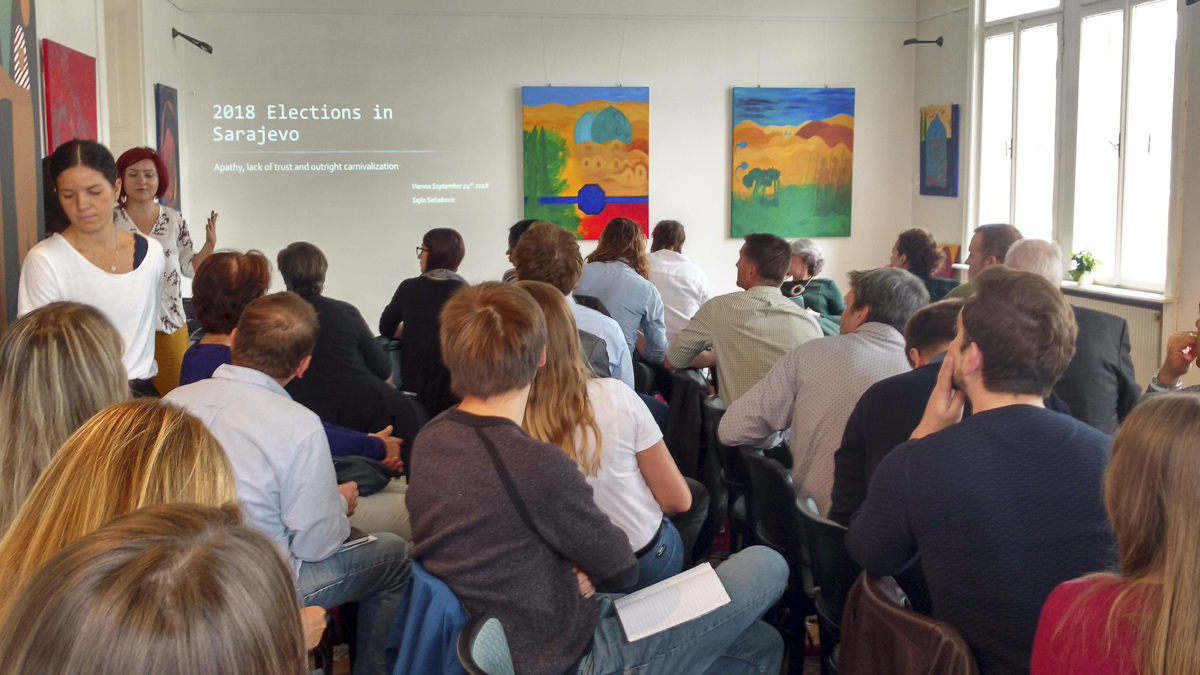
While the EU is again and again setting conditions for bringing Bosnia-Herzegovina forward and closer to start accession talks other countries just use the fragile situation to promote their interests without putting conditions to close relations. This is true for Russia which is specially active amidst Serbs. Also Turkey is very active – of course more with the Muslim population. The engagement changed and is now very much concentrated on fighting the Gulen movement and especially its educational network. Those who hoped to be able by attending some of its schools to have the opportunity to study in Turkey are now very disappointed that Gulen from being a friend became an enemy to President Erdogan. Even if neither Russia nor Turkey (or China, Saudi Arabia etc.) can offer what the EU could offer in respect of economic and political reforms these countries offer ideological support. And that counts these days sometimes more than jobs and democracy.
Maybe we should speak of a stability in instability in Bosnia-Herzegovina. Yes, there are some small parties and courageous politicians who are running for elections and they hope at least for a small success. But for the moment the traditional and ethnically oriented leader seem to be still in a pole position. Let’s be patient and never give up hope. And we should never exclude miracles.
